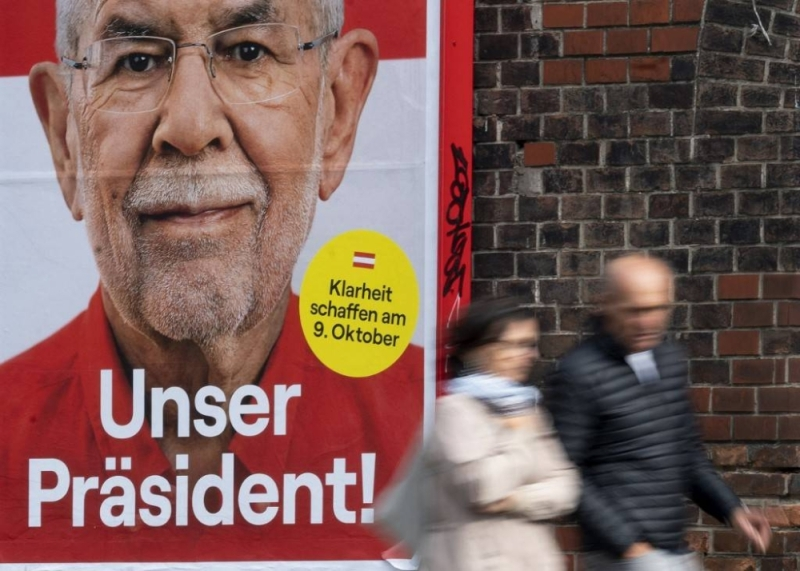Vienna, Oct 9 (ABC): Austrians started voting Sunday in a presidential election expected to return incumbent Alexander Van der Bellen, seen as a beacon of stability as the Alpine EU member struggles with an energy crisis and inflation. Campaigning on a slogan of “clarity”, Van der Bellen is widely tipped to clinch a second mandate, with his six challengers — all men — lagging far behind. “The biggest competitor on Sunday will be the sofa,” the 78-year-old economics professor said Friday at his last campaign rally, appealing to people to vote. Polls put the pro-European liberal as securing more than 50 percent of the vote, thus avoiding a run-off. Some 6.4 million people are eligible to cast their ballots from the country’s total population of nine million. Polling stations in Vienna and much of the rest of the country opened at 7:00 am local time (0500 GMT) with a few opening as early as 6:00 am. They close at 5:00 pm (1500 GMT) with early projections published once they close.
The former Greens leader runs again as an independent with posters proclaiming him “the safe choice in stormy times” with the ripple effects of Russia’s invasion of Ukraine pushing up inflation throughout Europe. But he has the explicit or implicit backing of Austria’s major parties except the far-right Freedom Party (FPOe), which has fielded its own candidate, Walter Rosenkranz, who is sitting in second place in the polls on 15 percent. Also standing for the presidency is 35-year-old punk rocker Dominik Wlazny, founder of the Beer Party named for its advocacy of the popular beverage. Van der Bellen — who supporters affectionately call “the professor” — faced an unexpectedly tough fight in 2016, only winning the race in a run-off against an FPOe politician.
But the FPOe’s ratings have plummeted since 2019 after a corruption scandal brought down the government they were part of and eventually led to the resignation of then-chancellor Sebastian Kurz himself in 2021. Analyst Thomas Hofer said it is “crucial” that Van der Bellen avoids a run-off like in 2016 when the campaign was “very divisive and hostile”.

